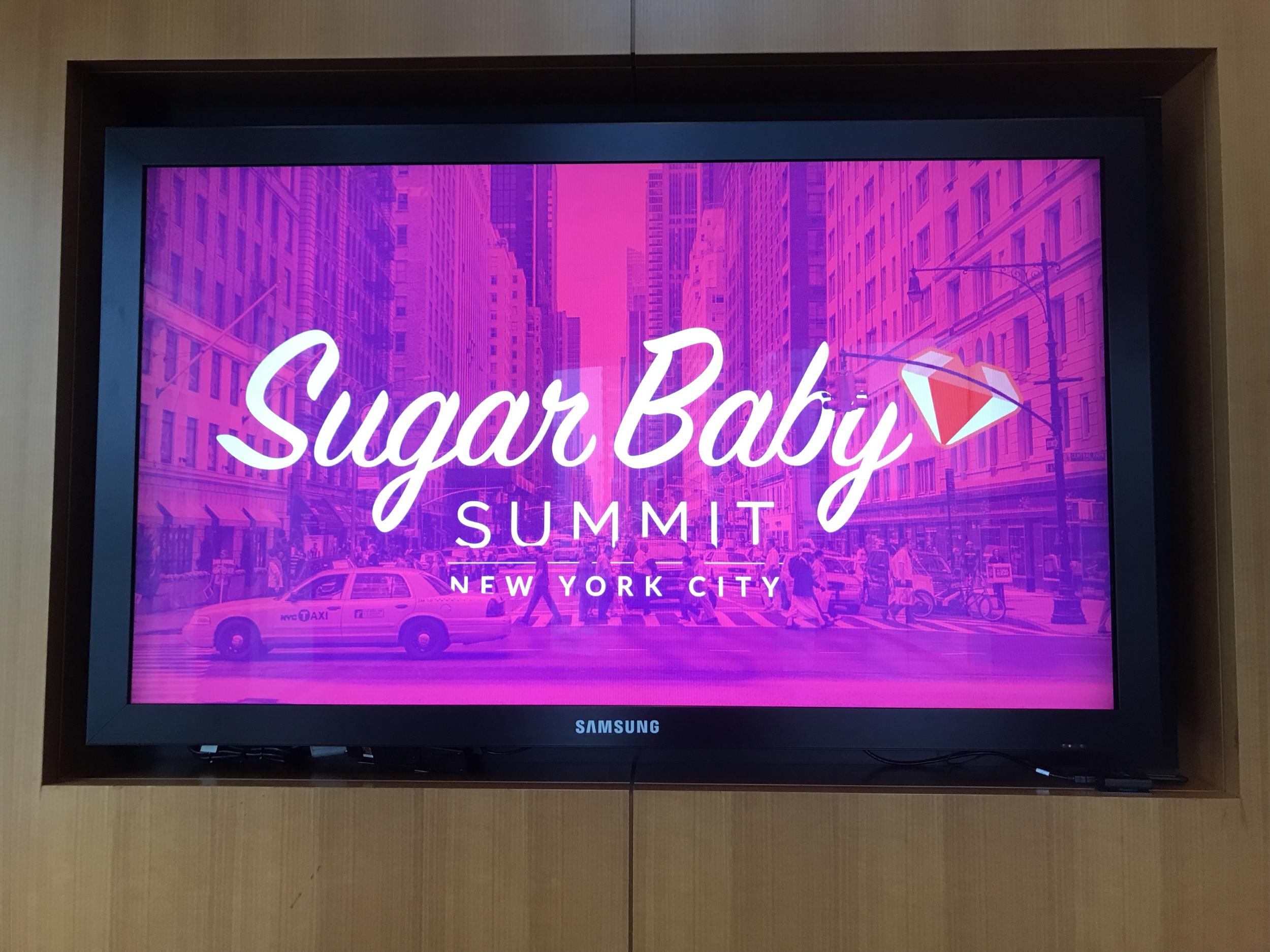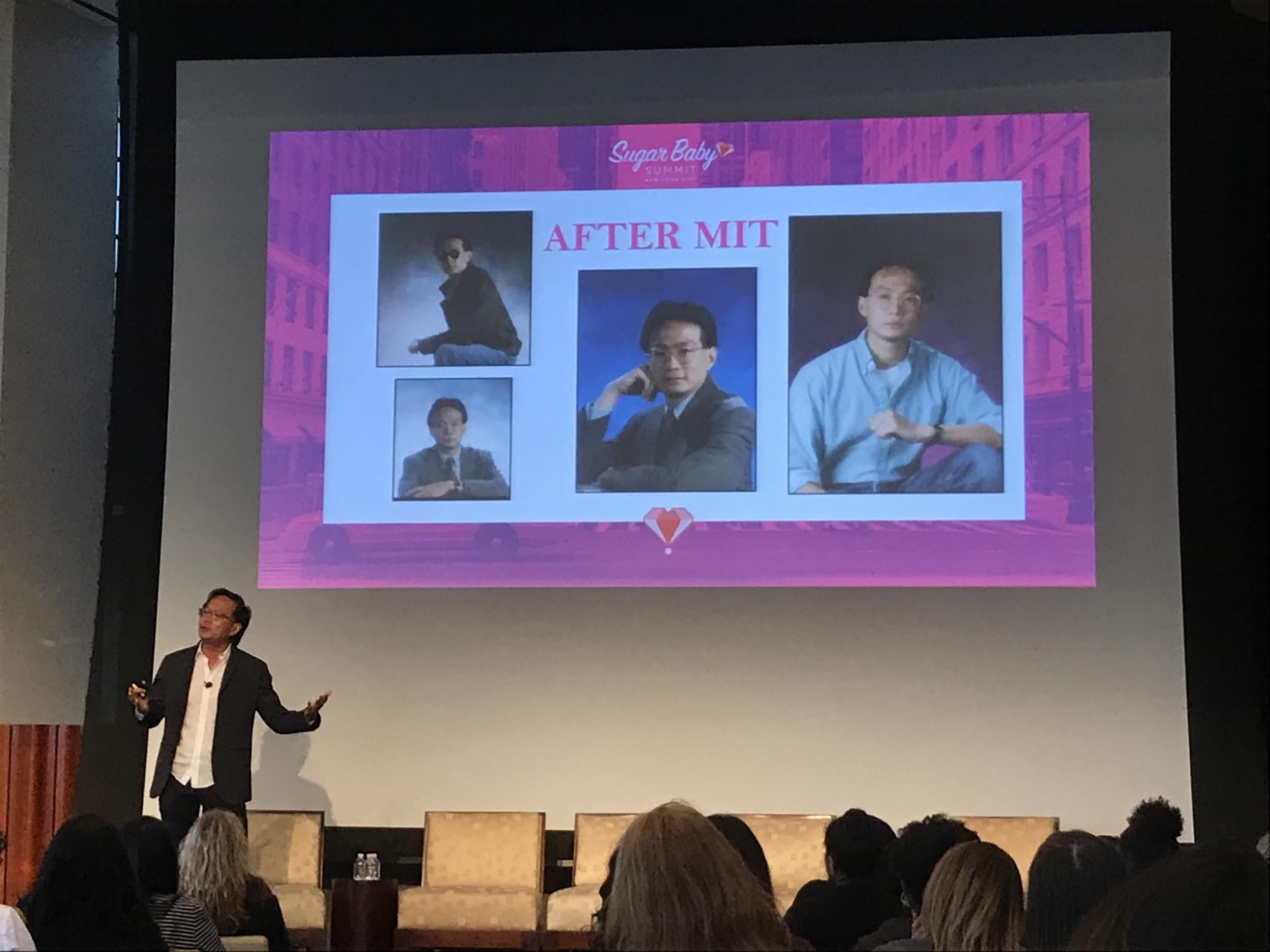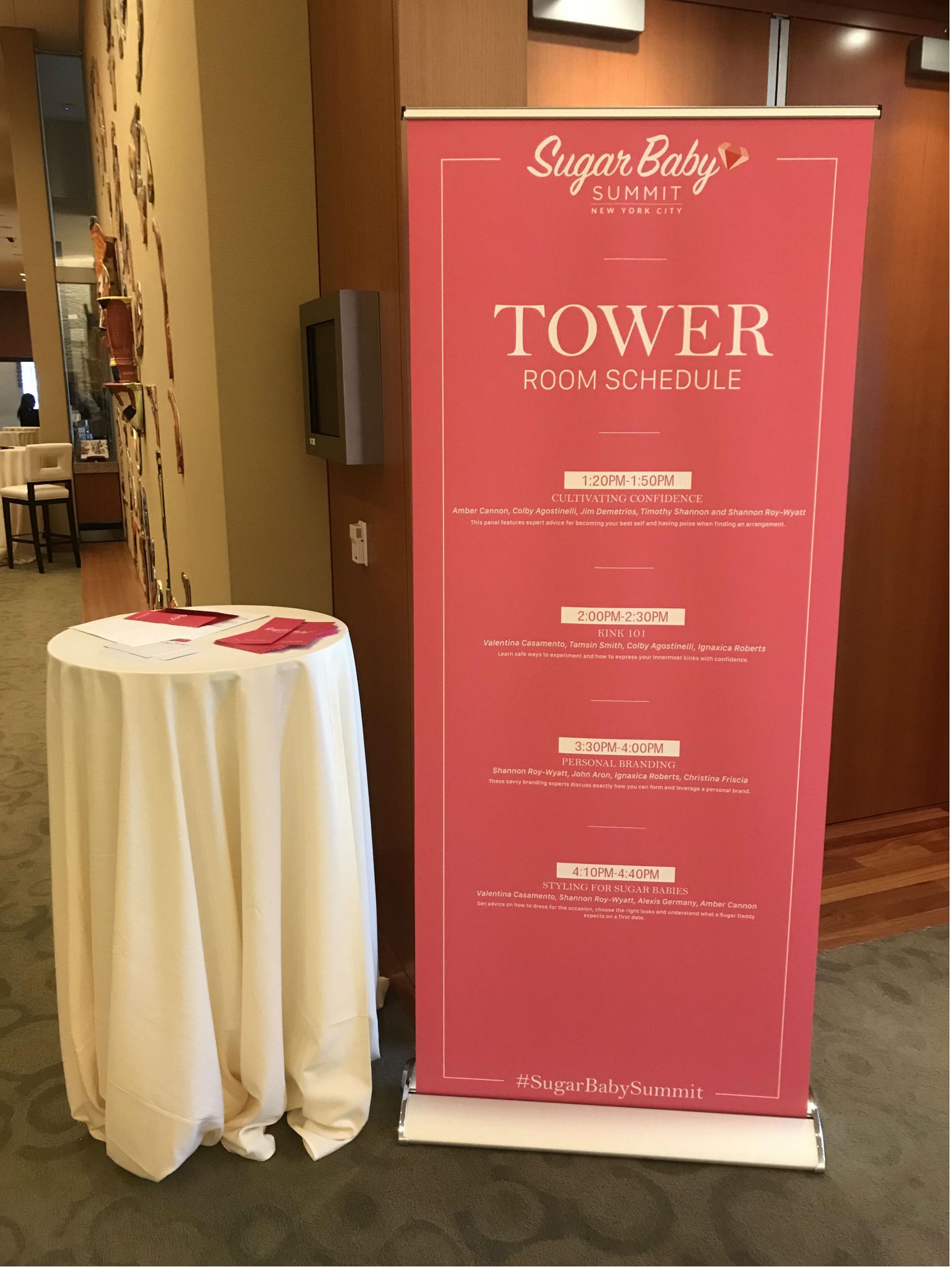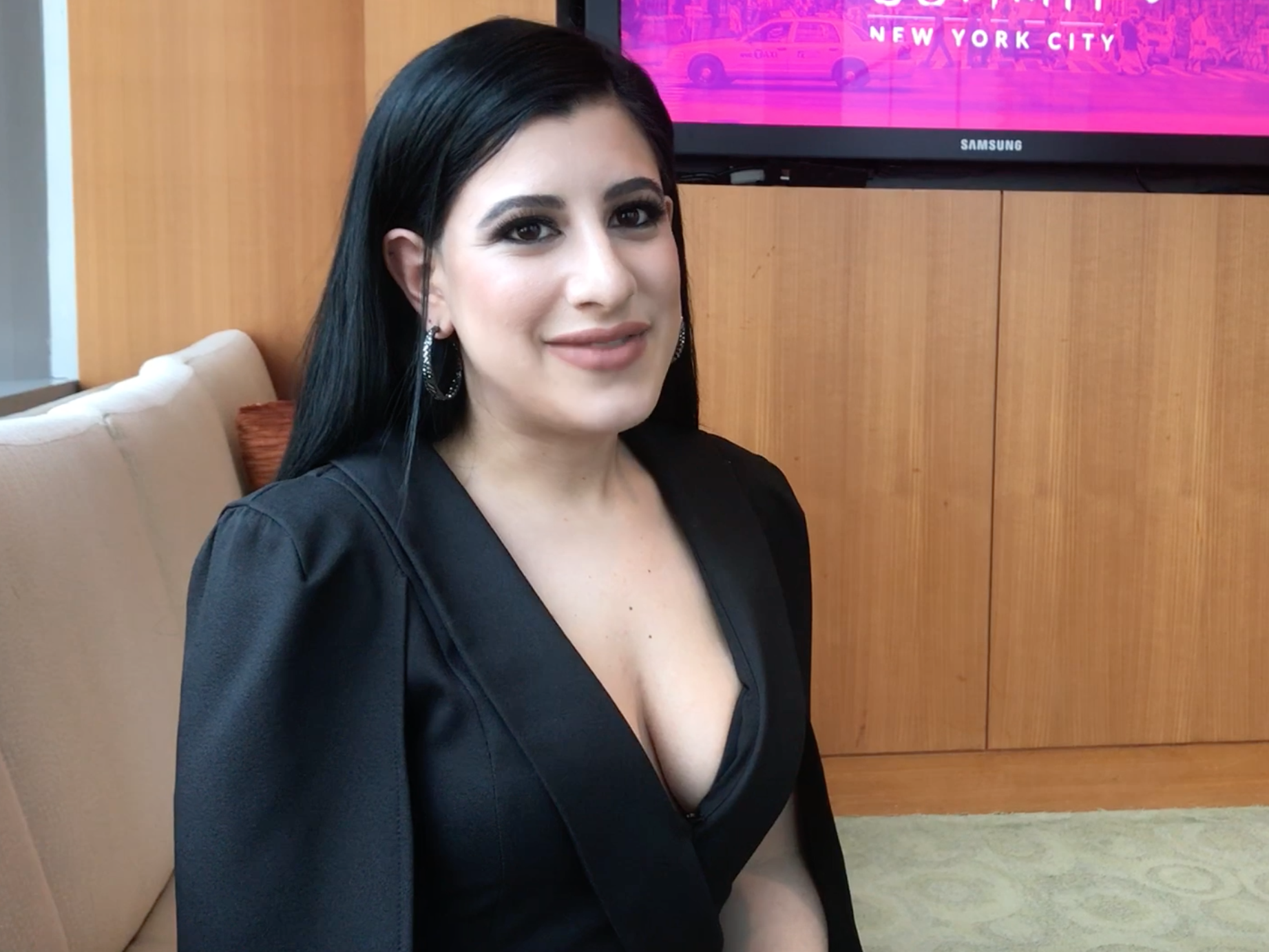We went to the world's biggest Sugar Daddy event and asked about the Me Too movement
On a conference-room stage in New York City, four women wrestled with questions of empowerment, wondering whether their lifestyle choices were hurting other women and whether their sex lives were truly consensual.
But this was not a women’s studies class at NYU, or a feminist book signing in Brooklyn. It was the Sugar Baby Summit, taking place among the skyscrapers of midtown Manhattan: A full-day event dedicated to teaching young, attractive women (aka sugar babies) how to find rich, older men (sugar daddies).
And they wanted to talk about #MeToo.
The summit was hosted by Seeking Arrangement, the first website dedicated solely to helping sugar babies and sugar daddies connect. The site has become increasingly popular in recent years, as sugar babies have started bragging about the fancy gifts, monthly allowances, and even tuition payments they've negotiated from their “daddies”. (Special status is given to sugar babies who sign up for the website using a .edu email address.)
Seeking Arrangement has not shied from the spotlight, expanding into lavish, annual events around the world. The unofficial theme of this year’s summit was “empowerment” – an obvious nod to the current feminist moment, though perhaps an odd one for a company premised on putting young, sometimes vulnerable women in relationships with older, more powerful men.
The event organisers covered their glitzy midtown conference centre in hot-pink Seeking Arrangement posters, and littered it with fliers about the “mutually beneficial relationships” participants could expect to find. Wrap-around windows revealed sweeping views of the city, giving the whole event the atmosphere of a high-powered business conference, rather than a glorified dating seminar.
Many of the more than 200 female attendees were, in fact, dressed for a business meeting, in pencil skirts and blazers. Others went a more seasonal route, in crops tops and miniskirts. Everyone wore heels. Attendees ranged from expert sugar babies giving advice, to novices looking to step up their game, to prospective sugar babies wondering if they should sign up for Seeking Arrangement at all.
Seeking Arrangement employees in tight-fitting red dresses flitted around the area, ushering attendees into conference rooms for seminars like “Sugar Semantics” and “Relationships on Your Terms”. Members of the press – and there were many – were corralled to designated media areas. Loitering anywhere outside the media room earned reporters a friendly, “Would you like to be shown to the press area?” from a red-clad woman.

Despite the locked-down nature of the event, CEO and founder Brandon Wade wandered around the space freely. In a pinstripe blazer and trendy black tennis shoes, the 48-year-old bore little resemblance to the nerdy self he proclaims to have been during his college years at MIT.
Throughout the conference, Mr Wade – who adopted the pseudonym because it sounded more “Hugh Hefner-esque” – was surrounded by beautiful, prospective sugar babies jostling for his attention. But his keynote address was all about the those painful early days.
According to the official Seeking Arrangement origin story, the site was born of Mr Wade’s life-long failures with women – and from his mother’s advice that one day, when he was successful and generous, the women would come.
In his keynote speech, the Singapore native spoke of the beautiful girls he’d never dared to ask out in high school, and the lone college girlfriend who’d dumped him for her ex. He recalled joining an old-fashioned dating service after graduating – in the days where not even OkCupid, much less Seeking Arrangements, were an option – but coming out empty handed.
In his 30s, successful in his career but still hopeless with women, Mr Wade resorted to a “love tour” through Ukraine. There, he met a beautiful young woman with whom he fell in love – before realising that she was taking advantage of every rich, American man who passed by on a tour.
Instead of being turned off by the experience, however, Mr Wade used it as the basis for his business model.
Today, the company he founded in 2006 has more than 10m members, and has been featured in outlets like the New York Times, GQ, and Business Insider. While the profiles usually pose the same questions – How is Seeking Arrangement not prostitution? Isn’t it degrading to women? – the authors seem unable to resist Mr Wade’s simple explanation for successful relationships: Men want beautiful women, and women want men who can provide.
I cornered Mr Wade during the seminar ask him about this: Seeking Arrangement markets itself as a new, novel way of dating, but isn’t it based on outdated gender norms? Do modern, “empowered” women really just want a rich man to take care of them?
His answer, essentially, was yes.
“[Sugar dating] is not necessarily a man taking on a specific role,” he explained, pointing out that there are also LGBTQ couples and “sugar mummies” on the site.
But, he added: “From a biological standpoint, our DNA is programmed a certain way. Humans evolve a certain way, and that’s why we still have that caveman/cavewoman mentality at the end of the day. So in that sense, the answer’s yes.”

Intrigued, I asked him if a business built off this notion could survive today, in the post-Me-Too era, where people are increasingly aware of how these power imbalances negatively affect women.
True to form, Mr Wade explained the difference with a business analogy. The women recounting their trauma during the Me Too movement, he said, “feel that they’re put in a situation where it’s a lose-lose scenario. They don’t want to say yes [to their abusers], because it’s not what they want to do. But if they say no, their careers are going to be impacted.”
But on Seeking Arrangement, he said, “it’s actually a win-win scenario.”
“There is consent, and with that comes the win-win scenario,” he said. “That’s the big difference, is it a lose-lose scenario, or is it a win-win scenario?”
Pressed on the issue, however, Mr Wade could not say how he knew there was consent in each Seeking Arrangement setting.
To its credit, Seeking Arrangement appeared committed to helping women get more “win” out of their win-win scenarios. The hosts of panels like “Cultivating Confidence” and “Kink 101,” seemed determined to prove that anyone could be an effective sugar baby, if they only tried. The catch, of course, was that they had to try really, really hard.
“Don’t be aggressive,” advised veteran sugar daddy Jim Demetrios during the “Cultivating Confidence” panel. “...Don’t talk about politics. Don’t talk about religion. Stay away from that stuff.”
As a cautionary tale, Mr Demetrios described one date in which a prospective sugar baby showed up late, wearing a sweatshirt. (“Dumb!” he proclaimed.) She talked too much about herself, and later asked him directly about compensation.
“She thought a lot of herself,” Mr Demetrios said, to laughs. “She thought she was brilliant, she thought she was beautiful. She was anything but.”
The sugar babies on the panel, meanwhile, suggested that attendees invest in self-improvement, so they would be more interesting on dates. Other panels promised to teach newcomers how to “choose the right looks and understand what a Sugar Daddy expects on a first date,” and how to “form and leverage a personal brand”.

Of course, if the sugar babies were putting in all this effort to please their daddies, it stood to reason that they should feel confident in asking for their end of the bargain. But the reality wasn’t so simple.
“I tend to find when [sugar babies] don’t ask, I spend more, because I don’t want to feel like I’m pinned to an amount,” expert daddy Carl Foster said during the “Let’s Talk Money” panel.
Mr Demetrios agreed.
“You don’t want to feel like it’s expected,” he counselled the women. “You want [your sugar daddy] to feel like he’s doing it because he wants to.”
Mr Wade went as far as to say he would stop seeing a woman who asked him about money on the first date. Prospective partners who didn’t broach the subject, however, would be rewarded with cash at the date’s close.
Timothy Shannon, a veteran sugar daddy and “lifestyle dating strategist”, summed up his thoughts on the issue succinctly: “If you deserved it, you wouldn’t have to ask for it.”
But how was this advice working out for the women? For the “expert sugar babies” – the ones trotted out by Seeking Arrangements for interviews, and easily identifiable by a green wristband – it seemed to be going pretty well.
Valentina, a 26-year-old 'expert' sugar baby I spoke to, said she’d been in a relationship with her sugar daddy for two years. Her bio in the speakers’ pamphlet boasted about their “50 Shades of Gray style arrangement” – something she said referred to their BDSM sex life, not the kind of domineering relationship depicted in the 50 Shades books.
“He don’t control me 24/7, and he knows that,” she said, wagging an acrylic-tipped finger for emphasis.
Outside the bedroom, Valentina and her sugar daddy go to expensive dinners, sit front row at sports games, and, occasionally, just cuddle and watch Netflix. He occasionally sends her gifts and picks up little things she can’t afford, liker her monthly gym membership.
She insisted the arrangement was natural for her, having grown up in a “loud, Italian family” where men were always the head of the household.
“For me, this is just my normal dating,” she said.

Other women were less successful. Nneka, a college student I spoke to who joined the site her freshman year, said she quit after a few months, when she couldn't find what she was looking for. She re-joined this year, as a junior, after hearing about a positive experience from one of her friends.
Shortly after re-joining, Nneka found an older man she really liked. They saw each other several times a month, and he took her to nice restaurants where they had interesting conversations. But aside from the fancy dinners, the sugar daddy wasn’t giving her much, well, sugar. Nneka wanted to ask for more, but she was afraid. She didn’t want to make him feel like she was using him.
Nevertheless, the 'expert' sugar babies on the panels insisted that sugaring was an empowering lifestyle. Brooke Urick, the host of the “Let’s Talk Sugar” podcast, told attendees in her opening address that sugaring was “a choice – an empowered choice.”
“Always remember how to phrase things, because you want him to feel in control, but really you’re in control,” she explained.

That sentiment carried over into the MeToo panel, where panellists laughed at the idea that sugar babies were enabling men’s bad behaviour.
Tasmin Smith, a marketing consultant and rape survivors’ advocate, accused the Hollywood stars of the Me Too Movement of being hypocritical.
“They sat next to these men at tables at the Oscars! They sat and they took the awards from men they accused,” she said of stars like Gwyneth Paltrow. “And yet sugar babies are going to be put under scrutiny?”
“Women have more power over the Harvey Weinsteins of the world than they think they do,” added veteran sugar baby Sara-Kate.
One expert sugar baby I talked to, a woman in her late 20s named Joannie, described herself as a feminist. Soft-spoken but direct, with a no-nonsense air, she said she signed up for Seeking Arrangement as a purposeful break from her normal life.
“In my normal life I’m very extremely independent and I don't really like to get help from people,” she said. “So for me to make the choice to be like, ‘You know what, I’m gonna allow someone to take care of me,’ it’s kind of nice.”
For the day, at least, the message seemed to be working. At the end of the conference, as attendees milled around grabbing swag bags and snagging the last of the free catering, every prospective sugar baby I talked to said she planned to sign up.
Join our commenting forum
Join thought-provoking conversations, follow other Independent readers and see their replies
Comments
Bookmark popover
Removed from bookmarks